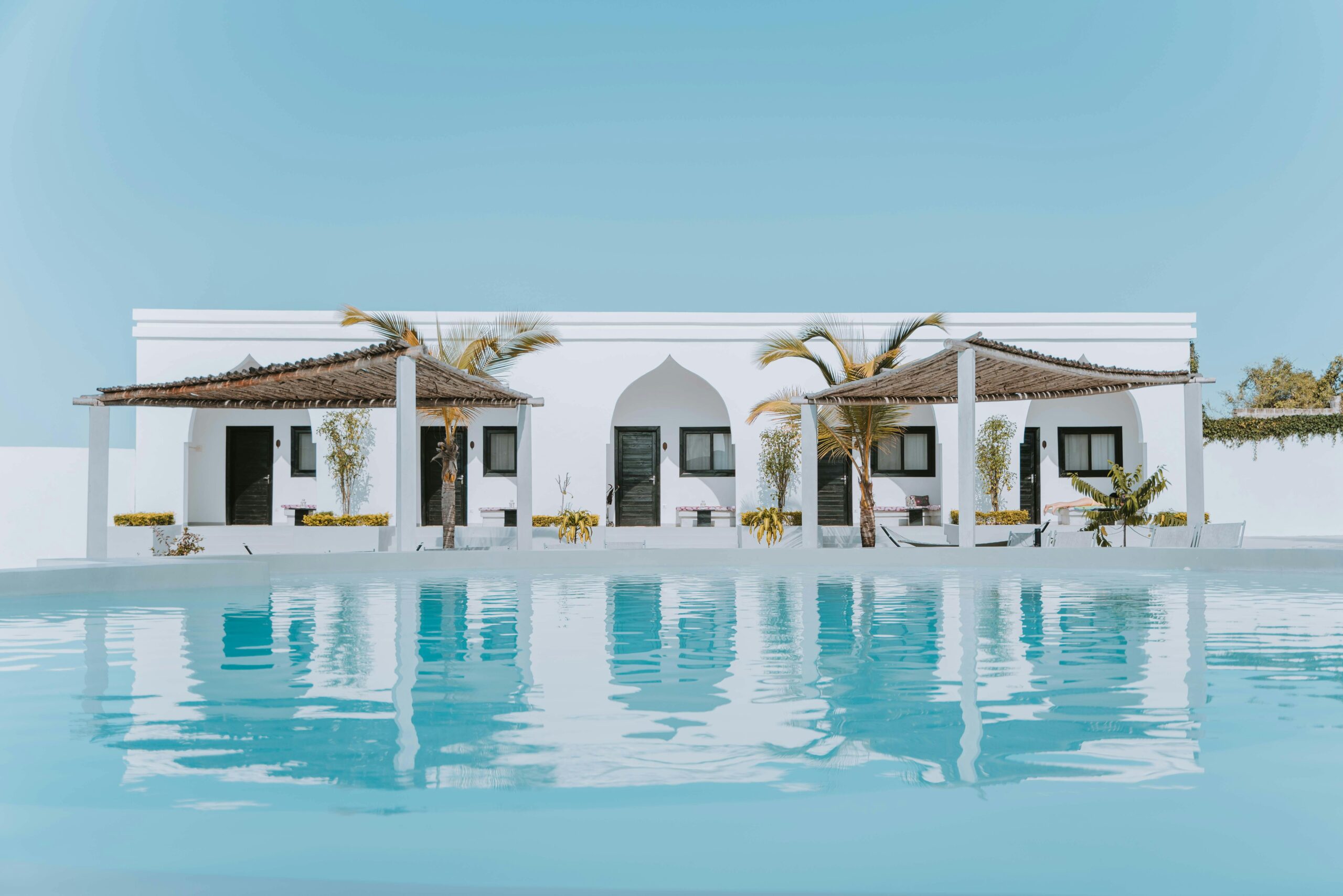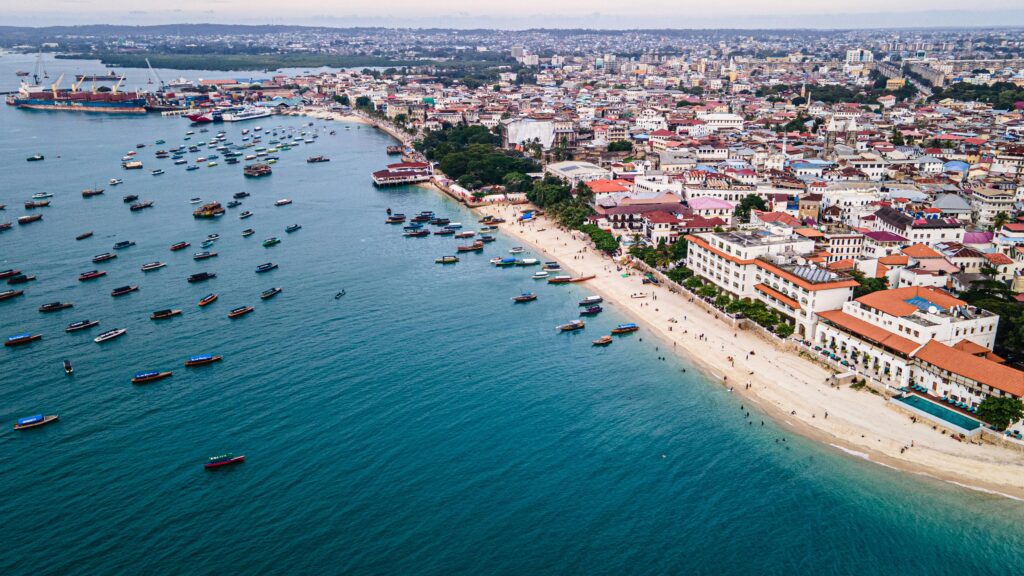Zanzibar Real Estate: A Market Overview
8/25/2025

Tanzania is one of Africa’s steadier macro stories—moderate inflation, a diversified economy, and a reformist tilt. Yet infrastructure gaps and a young, fast-urbanising population remain. Against this backdrop, Zanzibar (Unguja and Pemba) has built a distinct investment case: a tourism-led island economy with semi-autonomous governance, rapidly rising visitor numbers, and a legal framework allowing long-term leasehold ownership for foreigners via condominiums and ZIPA-approved projects.
On financing, lending costs are significantly higher than in South Africa: Tanzanian banks average ~15% lending rates, with “prime/negotiated” products closer to 13%. Mortgage volumes are expanding from a low base, supported by the Tanzania Mortgage Refinance Company.
Meanwhile, the demand side is strong: Zanzibar hosted 736,755 international visitors in 2024, up 15% from 2023, and July 2025 marked an all-time monthly record with over 106,000 arrivals. Passenger throughput at Abeid Amani Karume International Airport surpassed 2 million in 2024, underpinned by Gulf and European carriers.
Zanzibar: A Political and Economic Outlier
Zanzibar is semi-autonomous within Tanzania, with its own president, legislature, and tax authority. This arrangement stems from the 1964 Revolution, when the Sultan was overthrown and the islands merged with Tanganyika to form the United Republic of Tanzania.
While the Union government in Dodoma controls defence, foreign affairs, and monetary policy, Zanzibar governs its own health, education, taxation, and investment policies. This has often created political friction: elections in Zanzibar are more competitive than on the mainland, with opposition parties like CUF and ACT-Wazalendo historically challenging CCM dominance.
The result is a hybrid system: Zanzibar tied into national stability, yet with the freedom to introduce its own Free Economic Zones, ZIPA-administered investment incentives, and residency-by-investment schemes.
Zanzibar City & Stone Town: Africa’s Most Storied Archipelago Hub
Zanzibar City is the island’s anchor, split between Ng’ambo (modern city) and Stone Town (UNESCO-listed heritage). The Stone Town Conservation Act (1994) imposes strict rules on façades, heights, and materials, updated in 2022. Redevelopment is possible but tightly controlled.
ZNZ Airport’s Terminal 3, opened in 2021, has significantly expanded international connectivity. Bed-night demand is seasonal but strong: average hotel occupancy reached ~62% in 2023, with mid-40s to 50% levels recorded in 2024–25.

Breaking Down the Residential Submarkets
• North Coast (Nungwi & Kendwa): The island’s most famous beaches. Properties range from $55k entry apartmentsto $1.5m luxury villas. Strong demand from international visitors sustains rental markets.
• East & Southeast (Paje, Jambiani, Bwejuu, Michamvi): Popular with kitesurfers, digital nomads, and STR investors. Condo units from $123k, villas from $260–350k. Peak season yields are attractive.
• Northeast (Kiwengwa, Pongwe, Matemwe): Quieter and family-friendly. Beachfront land ~$50–60/m², villa resales in the mid-six figures.
• West Coast / Greater Zanzibar City (Fumba Peninsula, Mbweni, Bububu): Fumba Town, a 149-acre master-planned estate, is the flagship. Condos from $154k, villas from $350k. Attractive to long-let tenants, NGOs, and expats.
• Stone Town & Ng’ambo: Historic apartments and converted houses at $1,000–1,500/m². Strong tourism appeal, but heritage regulations increase compliance costs.
Commercial Property Landscape
Zanzibar’s commercial market is shaped by tourism and logistics.
- Hospitality: The main commercial play, from boutique riads in Stone Town to large beachfront resorts. Occupancy averaged ~62% in 2023 and continues to recover with record arrivals.
- Offices: Limited, mostly clustered in Ng’ambo and government/NGO corridors. Leases often quoted in USD.
- Industrial & logistics: Linked to SEZ/FEZ zones (Fumba, Amaan, Maruhubi, Airport Free Port). Stock is basic, but vacancies are low.
- Retail: Concentrated in tourist areas (Stone Town souks, Forodhani Gardens, Nungwi, Paje). Turnover leases and percentage-rent agreements are common.
Considerations for Every Investor
Whether you are buying a beachfront condo, a villa in Nungwi, a boutique hotel in Stone Town, or an industrial warehouse in a Free Zone, the same key questions apply.
- What is the sociopolitical outlook?
How could future elections, Union politics, or global tourism flows affect property demand and financing costs?
- What zoning applies to my property?
Is it in a SEZ/FEZ, under Stone Town heritage protection, or within the coastal setback zone?
- Which investment structure should I use?
Should the asset be acquired as a condo under Act 10/2010, or via a ZIPA-approved company vehicle?
- How will I manage the property?
Will I rely on a local STR manager, an international hotel operator, or estate-level management services?
- What are the tax implications?
How do Zanzibar’s 15% VAT, income taxes, or withholding taxes apply to rental income or future sales?
- How will this affect my lifestyle or corporate strategy?
Am I seeking yield only, or also lifestyle use, branding value, or a strategic presence in East Africa?
- Which submarket best fits my goals?
Am I targeting high-yield STRs in Paje, lifestyle retreats in Kendwa, stable long-lets in Fumba, or heritage conversions in Stone Town?
- What is the outlook of the submarket I am planning to invest in?
Is demand rising or stabilising? Are yields compressing, or is rental growth accelerating? How resilient is the node to shifts in tourism, migration, or policy?